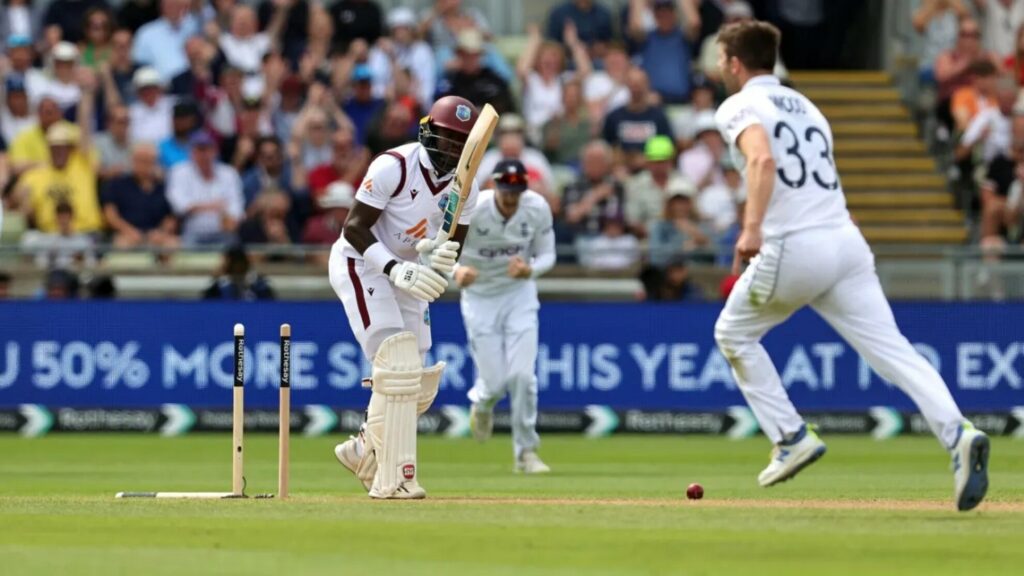The West Indies three Tests series against their English hosts ended, predictably some would suggest, in a 3-0 whitewash in favour of the homesters. The Caribbean side was condemned to a 3-0 sweep in the series after they lost the third and final Test against the English by 10 wickets at Edgbaston. They also lost the first Test – within three days – by an innings and 114 runs at Lord’s, and the second Test – inside four days
– by 241 runs at Trent Bridge.
The series loss represents a chastening reversal for the West Indies Test cricket as the pre-series hopes had
been for a much more favorabe outcome. One that would have allowed the West Indies to progress up the
ICC’s Test rankings rather than slipping further down.
So what lessons can be gleaned from the series that may prove to be of value in the immediate future? In
that regard there are at least five that have become glaringly obvious as necessary takewayas from the
series.
The first of these would be the immennt need to terminate Kraigg Brathwaite’s tenure as the West Indise Test
captain. Unless there’s a remarkable improvement to Brathwaite’s captaincy during the forthcoming two
Tests home series against the visiting South Africans it should be his last as captain.
Joshua has since rightfully been appointed as vice-captain for the South Africa series. DaSilva should then also be
subsequently appointed captain for the Two Tests home series this coming November- December as well as next year’s scheduled encounters, away to Pakistan and India and at home against Australia..
The batting to be built around Mikyle Louis as an opener, Kaveen Hodge
either at three or five, Alick Atahanze at four, and Joshua DaSilva as the batter-keeper. All four of those have shown from their England.
There are three fundamental requirements to captaincy. A) Meriting beyond
Series performances that they can and should be invested in for the
debate a place on the final playing XI; B) Being an astute tactitian in terms of
immediate future. field placings, and the overall on-field management of match situations, and C)
Similarly, the Test Team’s bowling can be buit around a rested Alzarri
Having the leadership skills that will create in all platers the desire to consistently
Joseph, Jayden Seales, Shamar Joseph as seamers with Gudakesh
give of their very best for the team.
Motie as the chosen spinner. Isai Thorne’s genuine speed also
It’s fair to say that Brathwaite’s captaincy of late, if not overall, has been dismally
offers the exciting prospect for the development of a penetrative
failing in all three of those requirements. As the team’s opening batter his last
four-prong in the near future, perhaps as soon as the forthcoming
twenty-five Test innings have produced 408 runs at an average of 20.4. He has
Bangladesh series.
recored zero centuries and only two have centuries from those innings, within
Takeaway four is that a bowling attack comprised of the two Josephs,
which as many as eight have produced single digit scores.
Seales, Thorne and Motie would very likely become consistently
As an onfield captain, Brathwaite’s field settings and decision making have both
capable of capturing the twenty opposition wickets that are required
left much to be desired. Mind boggling is the description that would be most
for winning any Test match. The inclusion of all five, plus DaSilva as the
appropriate.
keeper would of course, then leave room for only five batters in the
playing eleven. Three of whom have already been identified as Louis,
It has also become increasingly evident that the other members of the team
Athanaze and Hodge. As to who the other two should or could be is
aren’t always giving of their very best.The sheer inconsistencies of the West Indies
at this point anybody’s guess!
batting and bowling performances during the England series was evidence of
Brathwaite’s inability to inspire his players.
The final takeaway from the England Series is for Alzarri Joseph to be
rested for the entire forthcoming two-match Test series. Joseph needs
Takeaway 1: the time has come to move on from Brathwaite as captain. At 31 he
to be sent to spend time with a seasoned practitioner, either of his
is still young enough, however, to continue playing as an opening bat, should his
Antiguan compatriots Sir Andy Roberts or Sir Curtly Ambrose would
performances improve as required.
do nicely, being schooled on how to bowl proper Test match lenghts
Takeaway 2 would be that the West Indies now just as urgently needs to
and lines.
identify a new number three in the batting order. The incumbent Kirk McKenzie
Although he was the second highest wicket-taker for the West
tallied a paltry 82 runs from his six crease appearances during the England
Indies during the England Series, his ten scalps were captured at an
series. An average of 5.5 during a three match series is grounds for immediate
average of 45.40 with a whopping not at all economical economy
abandonment.
rate of 6.12. Joseph’s overall Test average now stands at 102 wickets
Failing the identification of any immediately suitable replacement for McKenzie
taken at an average of 36.05. That needs to come down significantly
at number three, the fallback solution might be to move Kaveen Hodge up
and the very best way for him to do so might be to tap into the pro
from number five. That would, however, create a corresponding dilemma of
offered advice of his illustrious, provenly successful, seniors Roberts
identifying a suitable number five.
and Ambrose. Back to school for you, AlJo.
Batting order headaches for the selectors in urgent need of being addressed as
Therein lie the takeaway lessons fron the concluded England
Takeaway 2.
3Tests series. Lessons if acted upon could yet result in improved
Takeaway 3, which is far more encouraging, woud be for the West Indies Test
performances by the West Indies Test team in the forseeable future.
